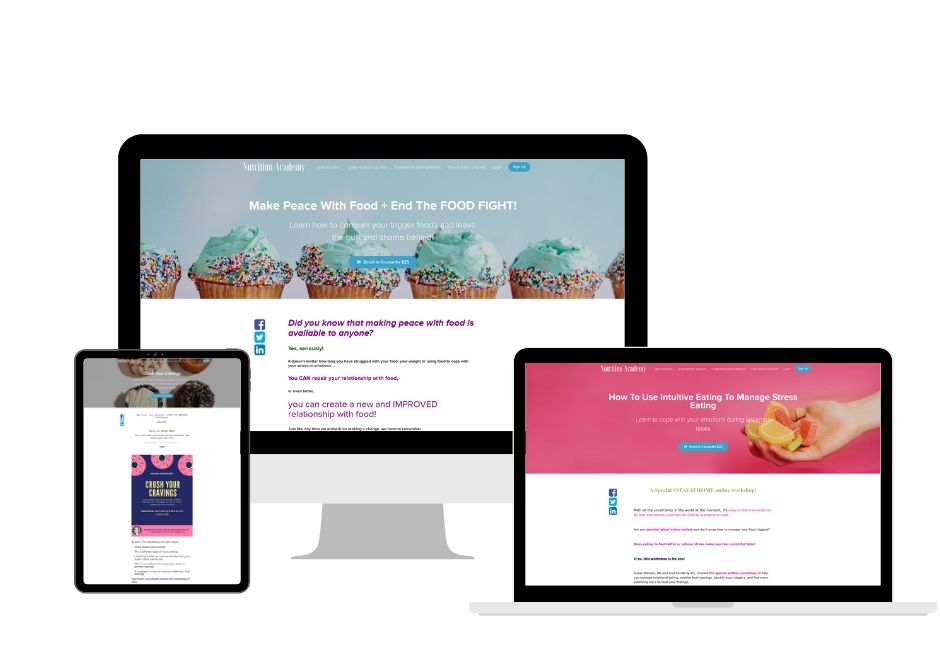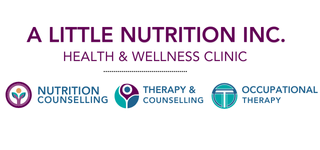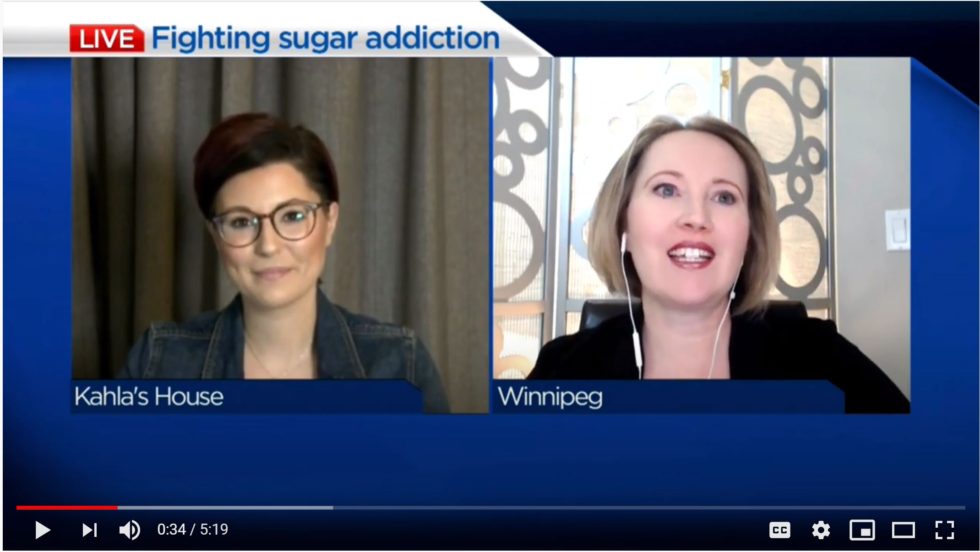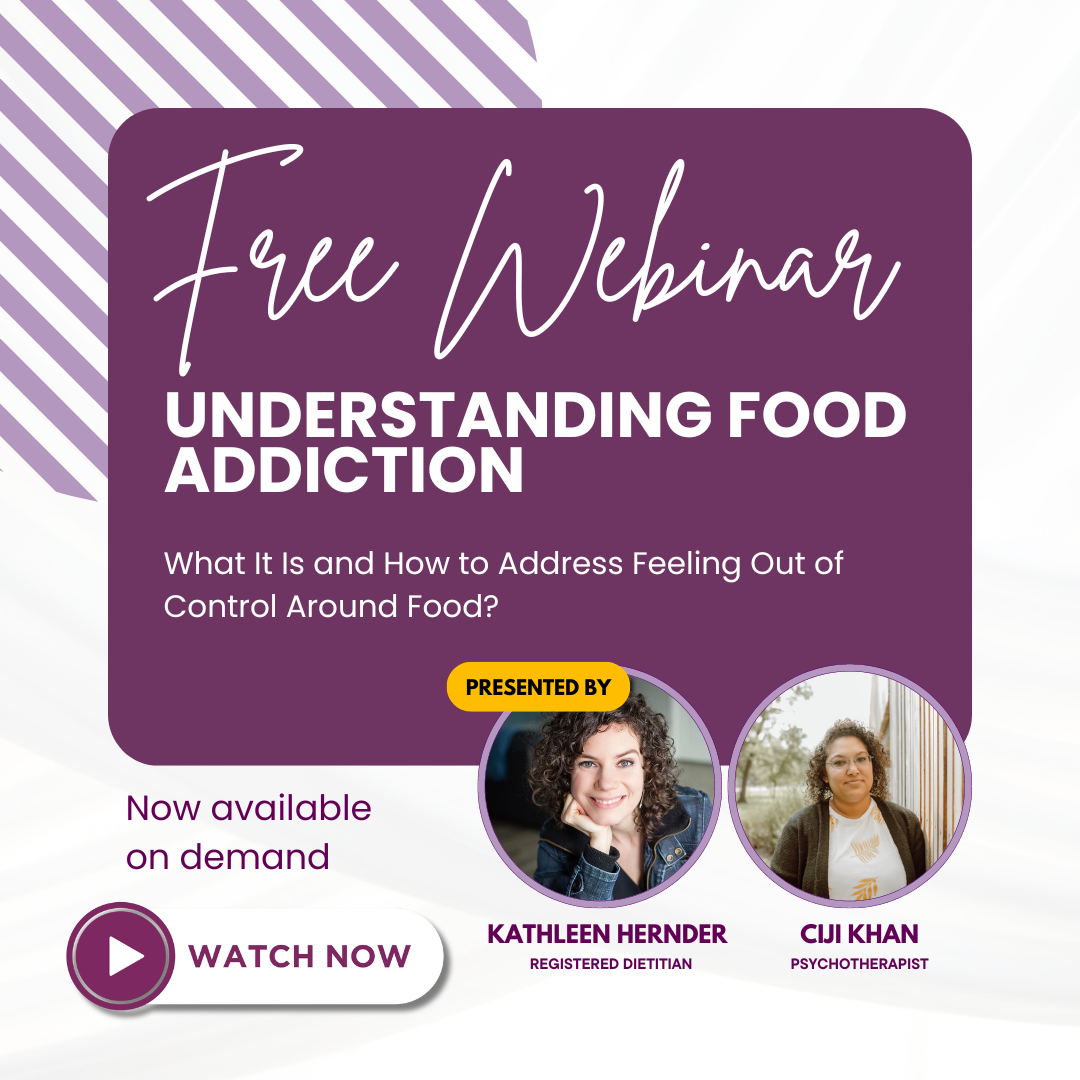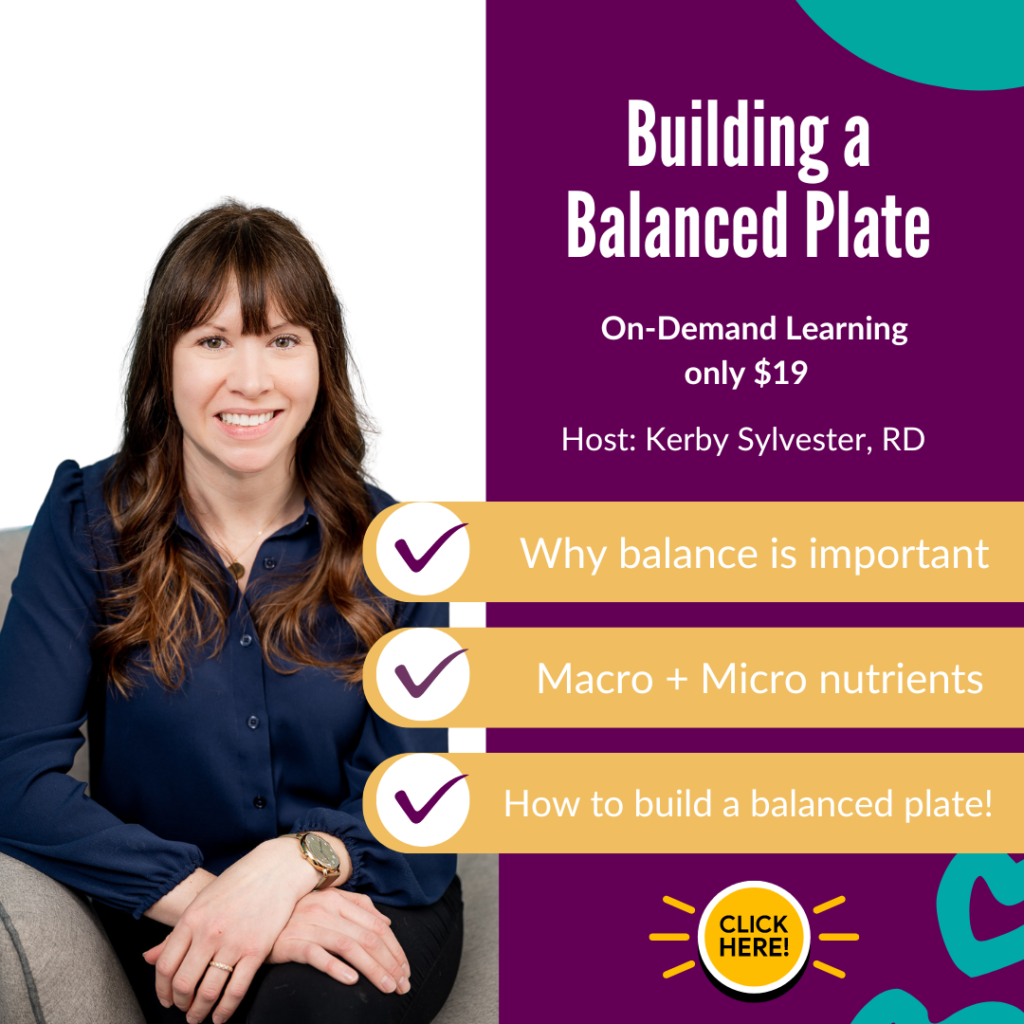It’s 10:30 a.m., you’ve just had a stressful meeting with your boss. You’re behind on your deadlines and you forgot to eat breakfast. Then wham, you get an intense craving for something sweet and sugary. You decide to leave the building and go get your favourite sugary coffee drink and treat to help deal with the extreme uncontrollable need to have sugar. After you quickly scarf down your delicious treat, you immediately feel a level of guilt mixed with shame. You start to wonder if you have a problem and consider that you may be addicted to sugar.
Sound familiar?
Do you ever feel that you are “addicted” to sugar and need to hide foods with sugar away from yourself? Maybe it’s the chocolate in your desk drawer or the ice-cream in your freezer?
Is sugar addiction real?
No, there is no actual evidence to support that sugar is naturally “addictive.”
Sugar addiction is not a medical diagnosis. Nor is there any evidence that shows that sugar acts like chemicals that are addictive, like alcohol and nicotine, in the brain. However, many individuals may perceive foods with sugar as addictive because they feel dependent on it.
In our clinic, we work with many clients that feel they may have a sugar addiction. They struggle with an uncontrollable and uncomfortable urge to eat and overeat foods containing sugar. However, using the word “addiction” doesn’t truly describe what they are struggling with.
Why do we feel addicted to sugar?
In our practice, we see four main reasons why people may feel dependent on sugar.
#1: Restriction or deprivation:
What we know is that it is human nature to want or crave something more intensely when we are deprived of the item or restrict it. The other aspect of this compulsion is that the act of rebellion is a common response. When someone is told a food item is “bad” or they can’t have it.
Even just the thought of restricting a food item or going on a diet or starting a new “wellness” plan can make our brain fire off uncontrollable urges to have the food items we know will be off-limits or be craving. Interestingly enough, our bodies have a natural, biological drive to consume more sugar when it feels it has been restricted.
Some studies have actually shown that having intermittent access to sugar actually leads to a higher release of dopamine in our brain than it typically would once we finally give ourselves permission to eat it! The additional dopamine is part of the reward system in our brain that’s trying to tell us “hey, we need that.!” When this happens, we turn to foods that contain more simple sugars, like chocolate and candy, because they are quickly digested and meet our need for carbohydrate fast.
#2 Chaotic eating patterns.
Skipping meals, going too long between eating, and not planning regular times to nourish yourself can be a problem. This type of eating pattern leads to being ravenous or “hangry”. Being in this state is actually very normal, and we call it biological or stomach hunger. However, it is often very hard to make a healthy food decision when you have entered this state. Getting this hungry leaves you vulnerable to grabbing quick fuel, which tends to be something sugary. This is because sugar is a type of carbohydrate, and our body requires carbohydrates to function optimally. When we are “hangry” or body is not functioning optimally, it’s depleted.
#3 Undernourished
Unbalanced meals that cut out entire food groups (like carbs) leave you vulnerable again to ‘brain drain” and crashing. If you are not eating balanced meals with protein, grains and veggies at your meals the chances are that you will be undernourished. Our body’s response to undernourishment is to crave what it needs. Often this is glucose for the brain to function so we end up grabbing quick energy to refuel our under nourished body.
#4 Psychological factors
Sometimes life gets heavy from time to time, and we may have a lot going on in our lives emotionally. Consuming food is a relatively inexpensive and quick way to deal with feeling crappy. And it isn’t at all wrong to do so. However, when we are unable to cope with feelings and emotions and we turn to food to cope as the only solution to our problems, we can’t blame sugar. When we are struggling and use sugar to cope with emotions one may also lead to feeling they are dependent on the food. But as mentioned there is no evidence that shows that sugar acts like chemicals that are addictive, like alcohol and nicotine, in the brain.
How to make peace with sugar
If your body is used to restriction or deprivation and undernourishment, it can initially be challenging to self-regulate your hunger and fullness and dive into giving yourself permission to include sugar in your diet.
A good first step is to get into a routine of fueling your body regularly throughout the day and including a balance of carbohydrate, fat, and protein at your meals and snacks.
It can also be helpful to keep a journal to record the meals you eat in a day and how you are feeling physically and emotionally. Keep a journal to help you bring awareness. This will help you identify whether or not that feeling of being addicted to sugar is related to biological hunger. Or if you’re really using sugar to cope with your emotions.
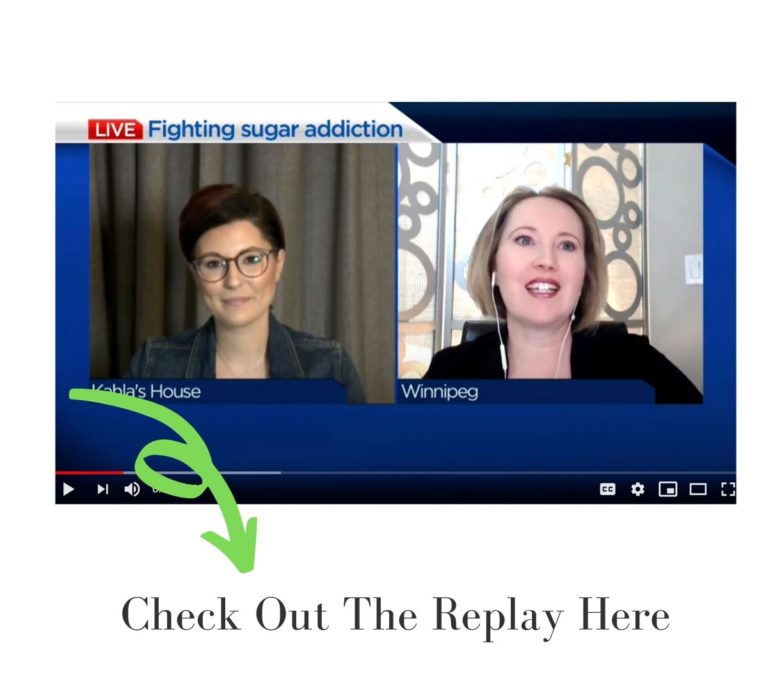
Work with us! We can help assess where in your life you might need to find more balance and normalize your eating so that you don’t feel like sugar is in control of your life.
Let us help you make peace with food and teach you how to use intuitive eating to master what, when and how much to eat.
HOW DO I BOOK AN APPOINTMENT WITH A REGISTERED DIETITIAN?
- To book an appointment with one of our Registered Dietitians or therapists you can:
- Phone: 204-515-7466
- Email: admin@alittlenutrition.com
- Book online: https://alittlenutrition.janeapp.com
Want to learn on your own?
Check out our amazing line up of online self-paced workshops to help you tackle emotional eating and repair your relationship with food
